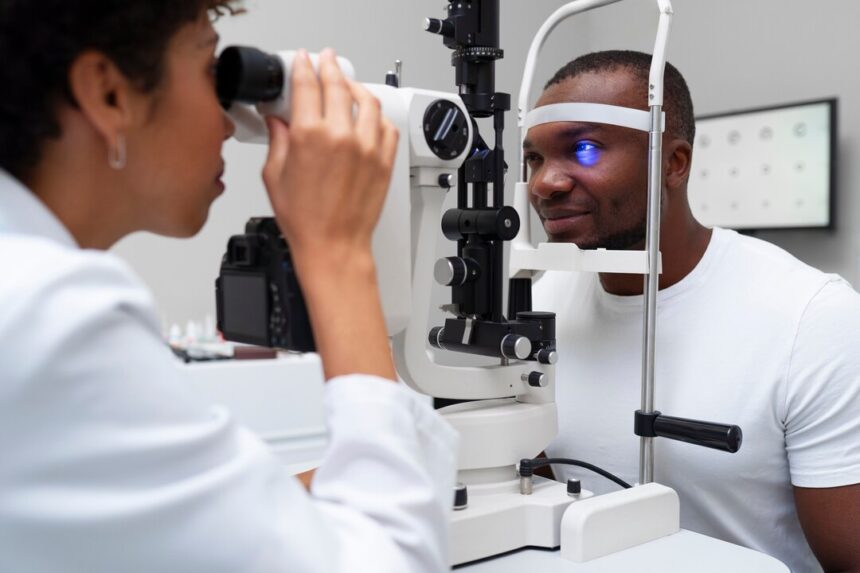Macular degeneration is a progressive eye condition that affects the macula, the central part of the retina responsible for sharp, central vision. While there is currently no cure for macular degeneration, there are several strategies individuals can employ to help manage the condition and preserve vision. Here are ten ways to effectively manage macular degeneration:
- Regular Eye Exams: Schedule regular comprehensive eye exams with an ophthalmologist or optometrist, especially if you have risk factors for macular degeneration such as age, family history, or smoking. Early detection and treatment can help slow the progression of the disease and preserve vision.
- Quit Smoking: Smoking is a significant risk factor for macular degeneration and can accelerate its progression. If you smoke, quitting can help reduce the risk of developing macular degeneration and slow its progression in those already diagnosed.
- Maintain a Healthy Diet: Eating a diet rich in fruits, vegetables, and omega-3 fatty acids may help reduce the risk of developing macular degeneration and slow its progression. Foods high in antioxidants, such as leafy greens, berries, and fish, may be particularly beneficial for eye health.
- Manage Chronic Conditions: Certain chronic conditions, such as hypertension and high cholesterol, can increase the risk of developing macular degeneration or exacerbate its progression. Work with your healthcare provider to manage these conditions effectively through medication, lifestyle modifications, and regular monitoring.
- Wear Sunglasses: Protect your eyes from harmful ultraviolet (UV) light by wearing sunglasses that block both UVA and UVB rays. UV exposure may contribute to the development and progression of macular degeneration, so wearing sunglasses outdoors can help reduce your risk.
- Use Low Vision Aids: For individuals with advanced macular degeneration who experience significant vision loss, low vision aids such as magnifiers, telescopes, and specialized lighting can help maximize remaining vision and improve quality of life. Consult with a low vision specialist to explore available options.
- Adopt Assistive Technologies: Utilize assistive technologies such as audio books, large-print materials, and voice-activated devices to help maintain independence and facilitate daily activities. These technologies can make tasks such as reading, writing, and navigating the environment easier for individuals with macular degeneration.
- Stay Physically Active: Engage in regular physical activity to promote overall health and well-being. Exercise can help improve circulation, lower blood pressure, and reduce inflammation, all of which may benefit eye health and slow the progression of macular degeneration.
- Monitor Changes in Vision: Pay attention to any changes in your vision, such as distortion, blurriness, or dark spots in your central vision. Promptly report any new or worsening symptoms to your eye care provider, as early intervention may help preserve remaining vision.
- Join a Support Group: Connect with others who are living with macular degeneration by joining a support group or participating in online forums. Sharing experiences, coping strategies, and resources with others who understand can provide valuable support and encouragement.
Managing macular degeneration requires a combination of proactive eye care, healthy lifestyle choices, and support from healthcare professionals and peers. By implementing these strategies and staying vigilant about changes in vision, individuals with macular degeneration can take an active role in preserving their vision and maintaining their quality of life. Remember, early detection and intervention are key to maximizing visual outcomes and adapting to life with macular degeneration.










